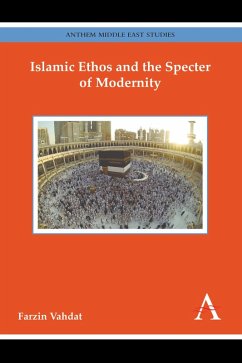Drawing on the work of Hegel, this book proposes a framework for understanding modernity in the Muslim world and analyzes the discourse of prominent Muslim thinkers and political leaders with reference to some of the most significant markers of modernity.
This study closely examines the works of nine major Islamic thinkers in twentieth and twenty-first centuries: Mohammad Iqbal, Abul Ala Maududi , Sayyid Qutb , Fatima Mernissi, Mehdi Haeri Yazdi, Mohammad Mojtaehd Shabestari, Mohammad Khatami, Seyyed Hussein Nasr and Mohamad Arkoun.
By discussing these thinkers, the book traces the genealogy of major strands of consciousness in some crucial parts of the contemporary Islamic world and their relations to significant features of the modernity, such as human and individual subjectivity and agency, freedom, domination, culture of mass democracy, human rights, women's rights, political activism and participation, economic ethos and views on forms of property ownership, as well as social and cultural pluralism.
This study closely examines the works of nine major Islamic thinkers in twentieth and twenty-first centuries: Mohammad Iqbal, Abul Ala Maududi , Sayyid Qutb , Fatima Mernissi, Mehdi Haeri Yazdi, Mohammad Mojtaehd Shabestari, Mohammad Khatami, Seyyed Hussein Nasr and Mohamad Arkoun.
By discussing these thinkers, the book traces the genealogy of major strands of consciousness in some crucial parts of the contemporary Islamic world and their relations to significant features of the modernity, such as human and individual subjectivity and agency, freedom, domination, culture of mass democracy, human rights, women's rights, political activism and participation, economic ethos and views on forms of property ownership, as well as social and cultural pluralism.
Dieser Download kann aus rechtlichen Gründen nur mit Rechnungsadresse in A, D ausgeliefert werden.

